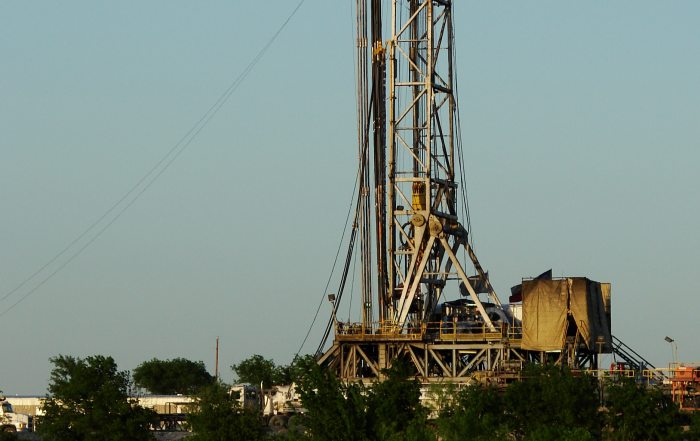
Image: Loadmaster (David R. Tribble), CC BY-SA 3.0, Link
An open letter to the Scientific Inquiry into Hydraulic Fracturing in the NT and the Territory’s Government states development of onshore shale gas and shale oil fields should not proceed – under any circumstances.
Fracking involves injecting water, sand and chemicals underground at high pressure in order force open cracks in rock/coal seams to access the fossil fuels underneath. The gas is primarily methane, which is estimated to have a GWP1 of 28–36 over 100 years. Not all the gas is captured, and some leaks out. These leaks known as fugitive emissions, and they can be at more than trivial levels.
“..significant quantities of methane are emitted into the atmosphere from shale gas development: an estimated 12% of total production considered over the full life cycle from well to delivery to consumers, based on recent satellite data,” states a 2015 study.
There are plenty of other reasons to be concerned about fracking too.
In September 2016, the Northern Territory Government announced a moratorium on hydraulic fracturing. In December that year it kicked off an inquiry into fracking to investigate the associated environmental, social and economic risks and impacts of accessing onshore unconventional gas reservoirs in the Territory. More than 1000 submissions were received by the Inquiry.
Earlier this month, the final round of regional community consultations on the Inquiry’s draft Final Report were completed.
The draft Final Report concluded:
“.. having considered the most current available scientific literature and data from a wide range of sources, and noting the recent and continuing technological improvements in the extraction of onshore shale gas, the conclusion of this Inquiry is that the challenges and risks associated with any onshore shale gas industry in the NT are manageable.”
The Final Report will be submitted to the Government next month.
Fearing fracking is about to become reality in the Territory, an open letter opposing such a development was coordinated by The Australia Institute.
Signed by dozens of academics, scientists, doctors and even a former senior executive of Royal Dutch Shell, the letter says a single new onshore shale gas field would boost Australia’s greenhouse gas emissions by 5%. A scenario proposed by the NT Government would see lifecycle emissions equal to 18% of Australia’s greenhouse pollution.
“Any new fossil fuel development is incompatible with the goal of the 2015 Paris climate agreement that aims to limit the rise in global temperature to well below 2.0°C above pre-industrial levels and to make every effort to limit the rise to 1.5°C,” states the letter.
While supporters of fracking says gas can be a bridging fuel to renewables, others believe that window has now closed – and renewable energy uptake should be accelerated.
“We have passed the time of gas being a transition fuel. It’s too late,” said the Climate Council’s Professor Will Steffen, a signatory to the letter.
Fracking doesn’t appear to have much support among Australians in general either. A poll conducted by The Australia Institute nearly a year ago on attitudes to state bans on fracking indicated 56% of Australians supported moratoriums and just 20% opposed them.
What does have a lot of support are renewable energy sources such as solar power – and to the NT Government’s credit, it has set a target of 50% renewable energy by 2030.
Footnotes
- GWP = Global Warming Potential compared to carbon dioxide. CO2 has a GWP of 1 ↩

 RSS - Posts
RSS - Posts



Speak Your Mind